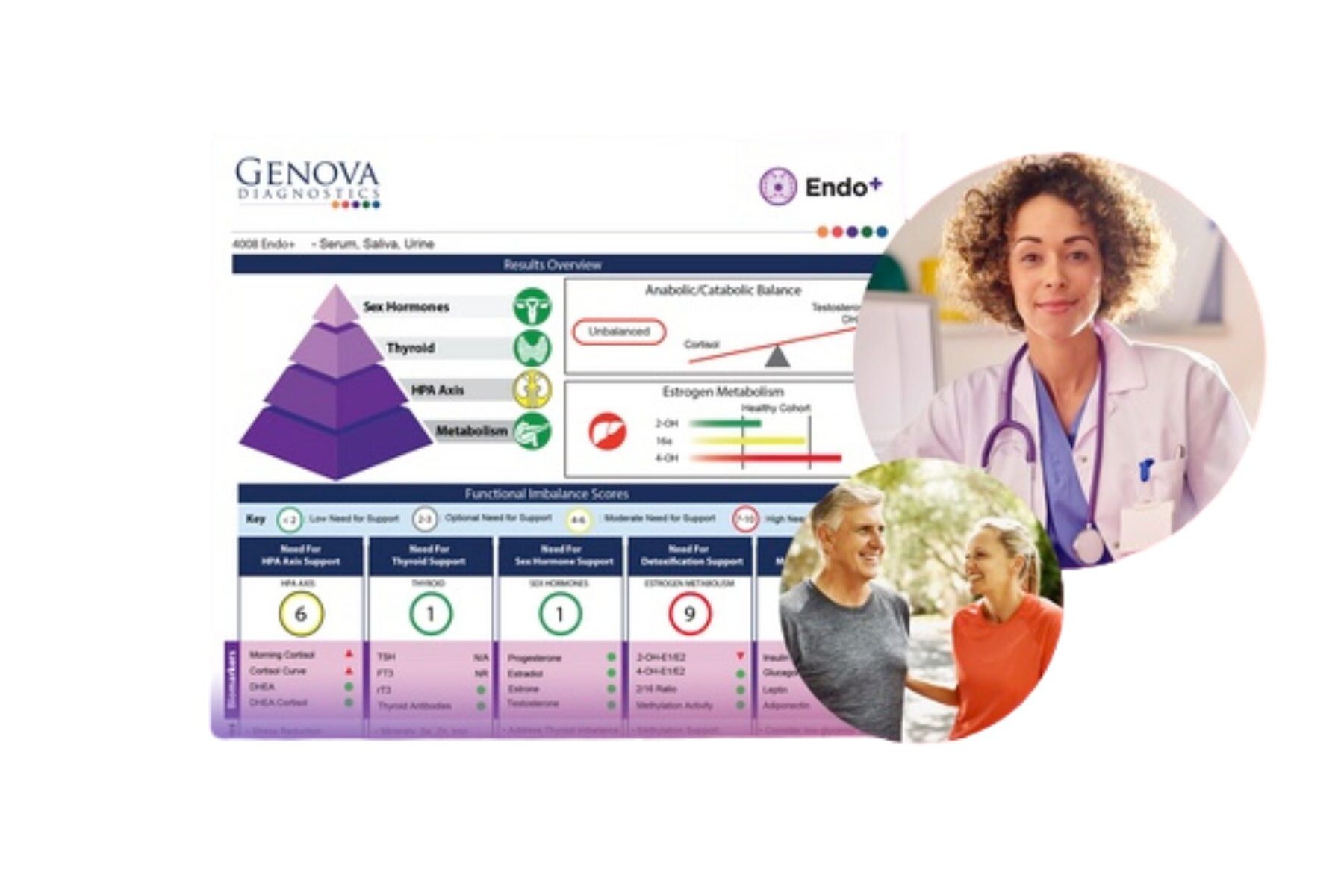The Adrenocortex Stress Profile and Endo Plus Tests
This post may contain affiliate links
Hormone dysfunction can impact energy, metabolism, and appetite—making assessing hormone levels essential for dietitians to tailor to their patients’ needs. This is where the Adrenocortex Stress Profile and Endo Plus tests can come in handy.

Understanding Hormone Health in Nutrition Practice
Hormones play a central role in regulating metabolism, appetite, stress response, sleep, and energy levels—all key elements to nutrition. It has become common for clients to come to us feeling lost in their weight loss journey, battling with chronic stress, fatigue, cravings, poor sleep, and mood changes that aren’t responding well to diet alone. This is exactly why as dietitians we must approach health in a holistic manner rather than isolating nutrition as the key to fixing all their problems. Functional testing is a great starting point to allow us access to the inner workings of our client’s hormonal health.
What Is the Adrenocortex Stress Profile?
The Genova Adrenocortex Stress Profile is a salivary test that measures cortisol at four time points throughout the day, along with DHEA. It’s designed to evaluate the function of the adrenal glands and the HPA (hypothalamic-pituitary-adrenal) axis.
It’s most often used to investigate chronic stress, fatigue, sleep issues, or suspected adrenal dysfunction.
How to Perform the Adrenocortex Test
Sample type: Saliva
Collection: Four samples across one day—morning, noon, evening, and night
Instructions: No caffeine, alcohol, or vigorous exercise on the test day; timing matters for accuracy
Processing time: ~2 weeks
What Is the Endo Plus Test?

The Endo Plus test (offered by labs like DUTCH or ZRT) gives a broader view of hormonal health. It typically includes cortisol, DHEA, estrogen, progesterone, testosterone, and often melatonin and estrogen metabolites.
This test is ideal for clients with menstrual irregularities, perimenopause, PCOS, libido changes, or multiple hormone-related symptoms.
How to Perform the Endo Plus Test
- Sample type: Saliva and/or urine, depending on the provider
- Collection: Multiple timed samples over 24 hours (varies by lab)
- Includes: Instructions on timing, diet, supplement restrictions, and stress-reduction protocols prior to testing
What are the Major Differences?
So what’s the difference between the Adrenocortex Stress Profile and the Endo Plus test? Here is a side by side comparison of the two!
| Adrenocortex Profile | Endo Plus |
| Hormones Tested: Cortisol and DHEA | Hormones Tested: Cortisol, Sex Hormones, Melatonin, and metabolites |
| Focus: Adrenal/HPA function | Focus: Adrenal and sex hormone balance |
| Sample Type: Saliva | Sample Type: Salivia and/or urine |
| Complexity: Basic | Complexity: Comprehensive |
| Use for: Fatigue, stress, sleep disturbances | Use for: Hormonal imbalances, cycle issues, libido, weight changes |
Are They Evidence-Based?
Yes, salivary cortisol and DHEA testing are validated methods for assessing adrenal hormone patterns. While comprehensive hormone panels are widely used in functional and integrative practice, more large-scale research is still emerging. These tests should complement—not replace—clinical judgment and standard lab work.
Why Dietitians Could Benefit from Using These Tests?
Functional hormone testing gives dietitians deeper insight into why clients may be struggling, especially when standard lab work looks “normal.” It can inform more targeted nutrition, supplement, and lifestyle plans—whether you’re managing fatigue, inflammation, PCOS, or weight resistance.
It also elevates your practice by expanding your assessment tools and aligning with personalized, root-cause approaches to care.
Bottom Line: Is It Worth Implementing Into Your Practice?
The Adrenocortex Stress Profile is ideal for evaluating stress and adrenal health, while the Endo Plus offers a full-spectrum view of hormonal balance. Both tests can be powerful tools in a dietitian’s toolkit—helping connect the dots between symptoms and physiology, and leading to more effective, individualized plans.
If you’re working with clients who struggle with unexplained fatigue, stress-related symptoms, weight resistance, or hormonal imbalances, yes—these tests can be a valuable addition to your practice. They offer objective data to back up what you’re seeing clinically and can help tailor more effective nutrition, supplement, and lifestyle plans.
While not essential for every client, hormone testing can enhance outcomes, increase client engagement, and set your practice apart—especially if you’re in a functional, integrative, or personalized nutrition setting.





